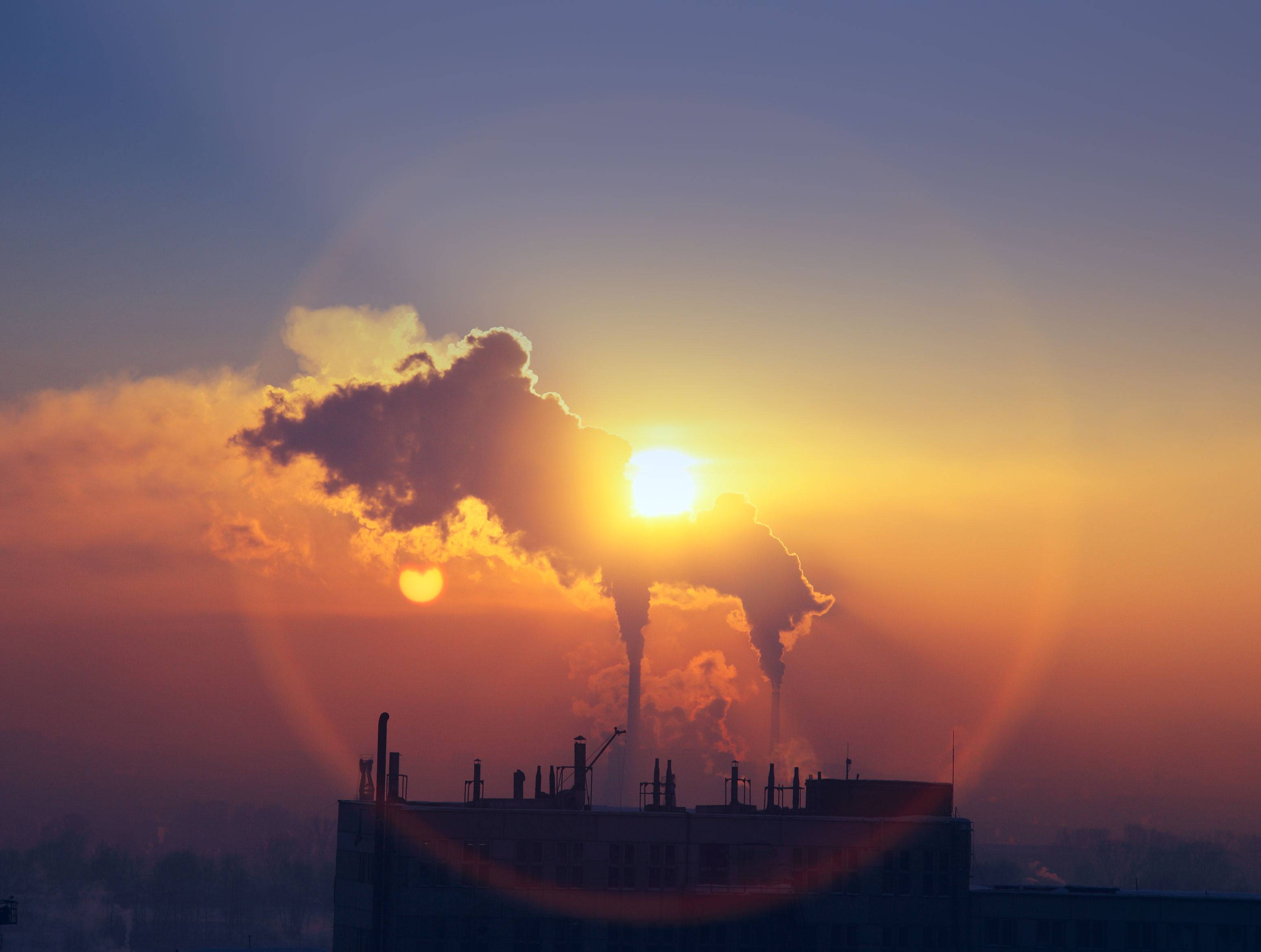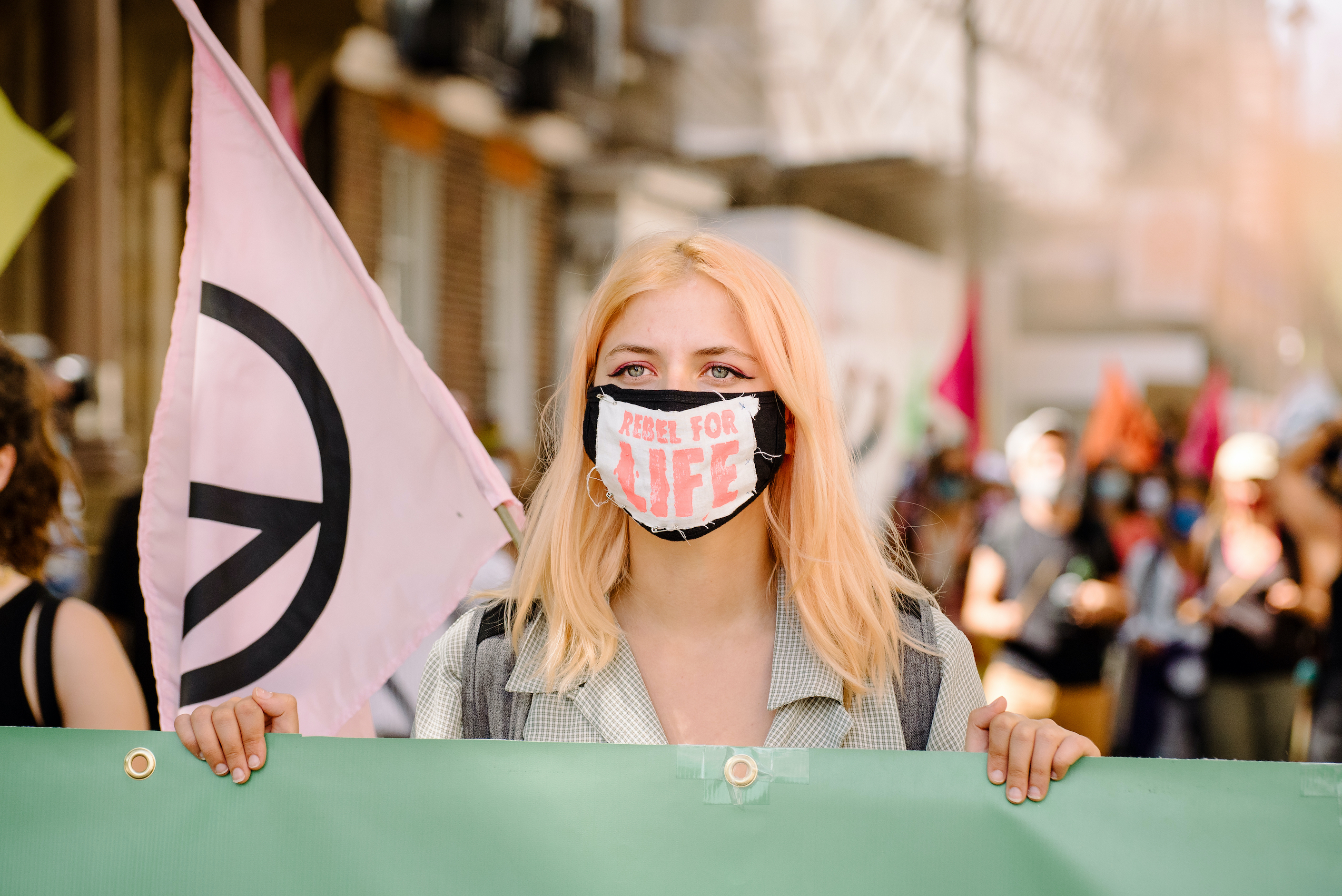Climate change is much more difficult because the sources of emissions into the atmosphere – of cutting down trees, of destroying carbon sinks – is everywhere. Every human activity contributes to climate change, to global warming. And if you’re going to regulate climate change, if you’re going to prevent climate change, the totality of human activity has to be regulated. We have to reduce our emissions of CO2 and other gases. We find this very difficult, because our economies and our lives and our well-being are constructed on the emission of greenhouse gases – CO2 and others. States have taken rather a long while; it’s been nearly 30 years since the negotiations on climate change began.
Ecocide: a fifth international crime?
Professor of Law
- Climate Change is one of those rare examples in which we are all in this together, and all of us have to do our bit on climate change, from the very largest and most powerful governments in the world to the most impoverished individual.
- If you go back to 1945, four international crimes were recognised: war crimes, crimes against humanity, genocide and the crime of aggression, as it is known today. There is a proposal to add a fifth international crime: the crime of ecocide.
- What happens next in relation to the protection of the environment and the criminal law? One option is to put a new crime – ecocide – into the statute of the International Criminal Court, but it will be for governments to negotiate that definition.
A collective effort
Climate change is probably the great issue of our day and for this next generation. How do we stop emissions into the atmosphere of greenhouse gases that will lead to global warming? I’ve been very involved in this issue for many years. I was a participant in the negotiations between 1989 and 1992 on the United Nations Framework Convention on Climate Change. That Convention, modelled on the UN Charter, the International Criminal Court, the Law of the Sea Convention, is a treaty governed by international law. It offers States the responsibility to address climate change. First and foremost, it’s for our 200 or so countries around the world to come together and adopt common measures. States have the primary responsibility: they adopt rules and regulations. It will then be for us – corporations, individuals, NGOs, towns, villages, any community – to implement those rules. That’s why this is one of those rare examples in which we are all in this together, and all of us have to do our bit on climate change, from the very largest and most powerful governments in the world to the most impoverished individual. Each of us is affected equally by this issue.
A slow process
One of the things that we’ve come to understand in recent decades is the interconnectedness of various issues. I first became aware of this in the 1980s, when the issue of ozone depletion came up. Scientists spotted a thinning of the ozone layer and suddenly recognised that something had to be done about it. It meant banning or regulating a whole series of products – hairsprays, CFCs – from not going into the atmosphere. Remarkably, in the space of just 10 years, governments came together across the world and banned a whole raft of ozone-depleting substances from production or use. It was an incredibly successful story. It showed that there is a will to protect the environment.

Photo by Gaak.
A fifth international crime?
If you go back to 1945, four international crimes were recognised: war crimes, crimes against humanity, genocide and the crime of aggression, as it is known today. For 75 years, no new crimes were created or recognised. Of course, back in 1945, the need to protect the environment was unknown. It was only in the 1970s and the 1980s that the protection of the environment came onto the international agenda.
Today, many people are recognising that the protection of the environment might be assisted by using, harnessing, the criminal law, not just at the national level but at the international level. There is a proposal to add a fifth international crime: the crime of ecocide. At the moment, I’m co-chairing a working group to come up with a definition of the crime of ecocide. I have to say, it’s challenging. How do you decide who are the individuals who are going to be put in the dock? After all, each and every one of us contributes to climate change, so which individuals might be deserving of having the tap on the shoulder, of having the finger pointed at them? It’s a very difficult issue, and it’s not immediately apparent to me how you address that question. People will agree that some things – major oil spills, nuclear disasters or intentional destruction of ecosystems – should certainly be a domestic crime, perhaps an international crime. But when the protection of the environment is threatened by actions that all of us are involved in, how the criminal law can help is a big challenge.
A legal definition
What happens next in relation to the protection of the environment and the criminal law? Many people are attached to the idea of ecocide. The first step is to come up with a workable definition. I and a group of a dozen people are engaged in that right now. Once that happens, governments have to decide whether they want to use the criminal law to protect the environment. Governments will have to take a draft working definition and refashion it. One option is to put a new crime – ecocide – into the statute of the International Criminal Court, but it will be for governments to negotiate that definition, although public pressure is hugely important.
I go back again to my own work on crimes against humanity and genocide. I wrote a book about the origins of those two subjects, and I came across two men, Lauterpacht and Lemkin, who, in 1944 and 1945, under extraordinarily difficult circumstances, didn’t curl up in a corner and weep; instead, they concocted these new ideas, “crimes against humanity” and “genocide”, and they then persuaded governments to integrate them into the charter of the Nuremberg tribunal. The ideas took off, and 75 years later, they are still with us – and actively so. I saw this for myself, when I appeared recently at the International Court of Justice in the case brought by the Gambia against Myanmar in relation to the allegations of genocide perpetrated against the Rohingya community.
The basic point is that ideas really matter. Once you have an idea, your task is to persuade governments to run with it. The experience of Lauterpacht and Lemkin, the experience of crimes against humanity and genocide, is that at the right moment, good ideas can run – and they can change the world.
Young initiative

Photo by Andrea Domeniconi.
I’m fascinated by watching how the concept of ecocide has grown in recent months and years, largely as a result of pressure by younger people, by the vital, important next generations. I think much of the work that I do has a certain interest, but it’s very curious that it was only when a newspaper somewhere noted that I was involved in this drafting exercise of the crime of ecocide that my own children Whatsapped me and said, ‘Dad, that’s amazing that you’re doing it.’ I’ve noticed that with ecocide, unlike any other issue, it is driven by the energy, the vision, the desire, the hunger, the interests of younger people. They’re not apathetic. They’re absolutely engaged.
I think my generation and, in particular, my generation of technocrats, lawyers, so-called experts, judges, prosecutors and others are absolutely going to take notice of what this younger generation is saying. The crucial question will be whether governments take notice. But I’ve seen for myself the powerful force of young initiative in driving forward this idea whose time it may be about to come.
Solidarity with smaller States
One of the things that we’re coming to see with the coming climate change is the disparate effect that is being felt. As I said earlier, we’re all in it together, but we’re not all in it together, equally. Smaller States, more impoverished States, are less well equipped to deal with the consequences of climate change, and that raises possibly the most fundamental question of all global solidarity. As an international lawyer, how can the law contribute to a greater global solidarity? We’re living through this right now, in the COVID-19 pandemic. We’re seeing, for example, the total monopolisation of vaccines by richer, more powerful countries. I think 87% of the vaccines are going to a very tiny number of countries. The vast population of the rest of the world is having to wait its turn. In the consequence of that suffering, we’re not seeing global solidarity, although some are pushing for that and there are programmes and projects to try to make this happen.

Photo by sun ok.
Our biggest priority
If I was asked to choose what I would prioritise right now, in terms of our actions going forward, the only one that cuts across all sectors is the rule of law. We need to ensure that the world we occupy continues to be governed by the rule of law, that it does not become a lawless place, that it does not become a place in which power rules absolutely, in which the biggest and the strongest are completely in control. We will only be able to address decolonisation, human rights and environmental protection if we harness the idea of rules which apply to all of us, which bind all of us and which encourage all of us to act in a way that respects others and protects others. If we don’t have a rule of law, we are lost as a community. We are lost in terms of the possibility of solidarity. The rule of law is the glue that keeps us together.
Discover more about
climate change and the rule of law
Sands, P., Peel, J., Fabra, A., et al. (2018). Principles of International Environmental Law. Cambridge University Press.
Sands, P. (2016). Climate Change and the Rule of Law: Adjudicating the Future in International Law. Journal of Environmental Law, 28(1), 19–35.